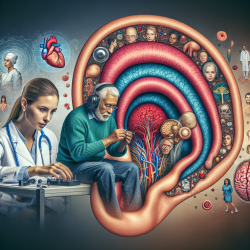Introduction
The phenomenon of burnout among medical learners is increasingly recognized as a critical issue with significant implications for both individual well-being and healthcare outcomes. The research article "The Silent Epidemic: Causes and Consequences of Medical Learner Burnout" provides a comprehensive overview of this issue, highlighting the need for targeted interventions and further research. As practitioners, understanding these insights can guide us in creating supportive environments that foster resilience and professional growth.
Understanding Burnout in Medical Learners
Burnout is characterized by emotional and physical exhaustion, a sense of detachment from one's work, and a reduced sense of personal accomplishment. For medical learners, these symptoms are often exacerbated by the demanding nature of their training environments. According to the research, burnout among medical learners is influenced by both interpersonal and environmental factors, with significant consequences for mental health and professional efficacy.
Key Findings and Implications
The research identifies several key findings:
- Burnout prevalence among medical learners can approach 50%, with the medical education process being a significant contributing factor.
- Emotional exhaustion and depersonalization are common, with the latter being particularly difficult to reverse.
- Interventions such as wellness programs and mentorship are recommended, though their effectiveness varies.
These findings underscore the need for a multifaceted approach to address burnout, focusing on both individual and systemic factors.
Strategies for Practitioners
Practitioners can play a crucial role in mitigating burnout by implementing evidence-based strategies:
- Create Supportive Learning Environments: Foster an environment that encourages open communication, peer support, and mentorship. This can help learners feel more connected and less isolated.
- Implement Wellness Programs: Develop programs that promote physical and mental well-being, such as regular exercise, mindfulness practices, and access to counseling services.
- Encourage Work-Life Balance: Advocate for policies that allow learners to maintain a healthy balance between their professional and personal lives.
- Promote Resilience: Incorporate resilience training into the curriculum to equip learners with the skills to manage stress effectively.
Encouraging Further Research
While existing research provides valuable insights, there is a need for further studies to explore the diverse factors contributing to burnout and the effectiveness of various interventions. Practitioners are encouraged to engage in research initiatives and collaborate with academic institutions to advance our understanding of this critical issue.
To read the original research paper, please follow this link: The Silent Epidemic: Causes and Consequences of Medical Learner Burnout.










